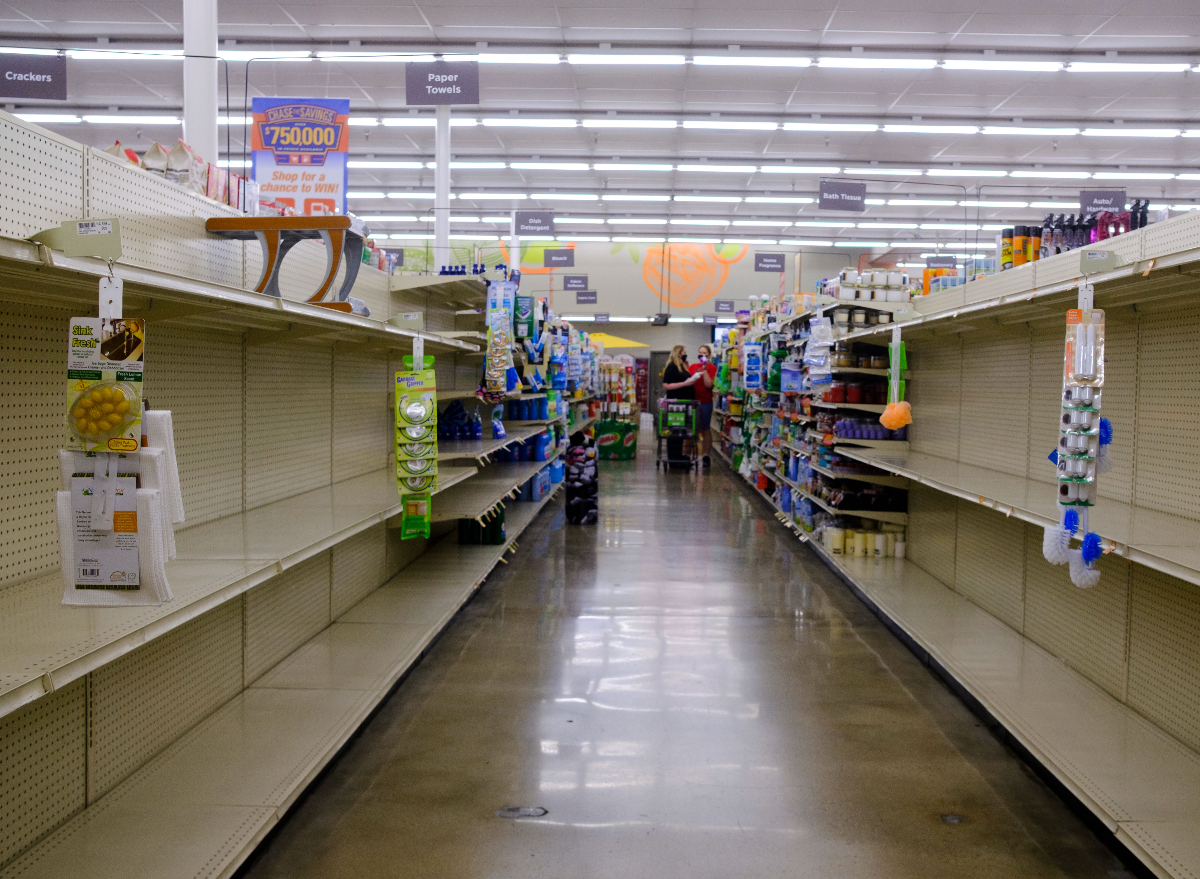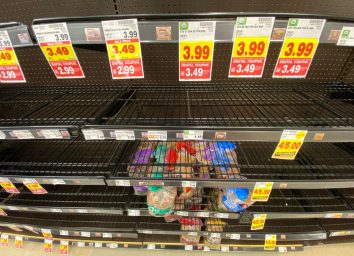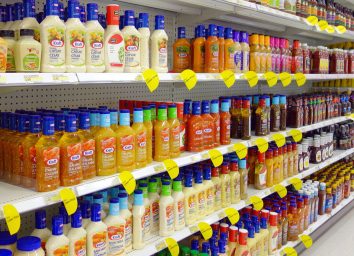Supply of These 4 Grocery Items Is Dwindling, Reports Say
We've finally reached that point in the holiday season when trips to the grocery store to get last-minute gifts and ingredients are in full swing. While supermarkets update their COVID-19 rules as the Omicron variant spreads, more food shortages are looming—including some items traditionally eaten at holiday feasts.
Reports indicate that the supply of four grocery staples is dwindling as we inch further and further toward 2022. Time will tell if the new year brings more empty shelves—and if the supply chain issues that plagued supermarkets for the past year finally get resolved. For now, here's everything you need to know about the potential impact on your kitchen pantry.
Related: Supply of These 4 Grocery Items Could Fall Drastically, Experts Predict
Peppermint

It's beginning to look a lot like Christmas, except the candy canes and silver lanes may not be aglow because the supply of fresh peppermint is dwindling. During the last 10 years, peppermint production has fallen by almost 2 million pounds, according to the U.S. Department of Agriculture—and it's causing stores to run out of candy canes.
The owner of Economy Candy told The New York Post that his Manhattan store didn't have candy canes in stock as of Dec. 18. "We only received half of our candy cane order for the holiday season and sold out almost immediately," Mitchell Cohen said. "Raw material and ingredient shortages globally have had quite an impact."
Hazelnuts
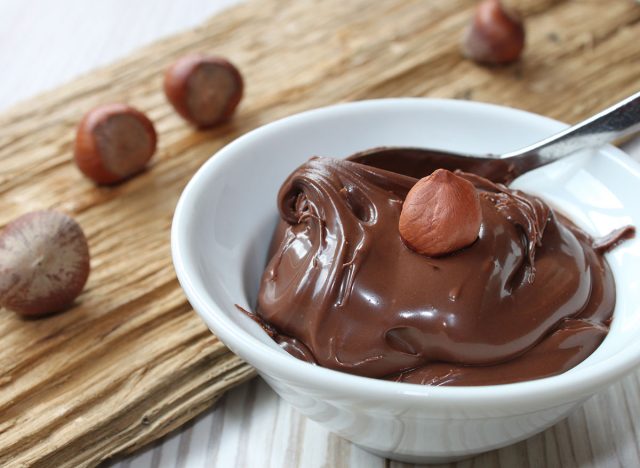
Turkey produces about 70% of the world's hazelnuts, but the country's currency crisis has "shaken" the supply chain, according to The Wall Street Journal. It's causing fertilizer, pesticide, seeds, soil, and more hazelnut farming essentials to increase in cost. Additionally, nut factories are spending more to remain open and retain workers. These costs will soon be passed down to consumers.
In the U.S., almost all of the hazelnut crop is grown in the Willamette Valley region of Oregon. Last year, Food Navigator USA reported on "a new cultivar and a steady replanting effort that has nearly tripled in supply." Once hazelnut trees reach maturity, they can produce for up to about 90 years. Thus, there appears to be a light at the end of the tunnel should overseas production continue to dwindle.
Related: To get all of the latest grocery store news delivered right to your email inbox every day, sign up for our newsletter!
Tamales
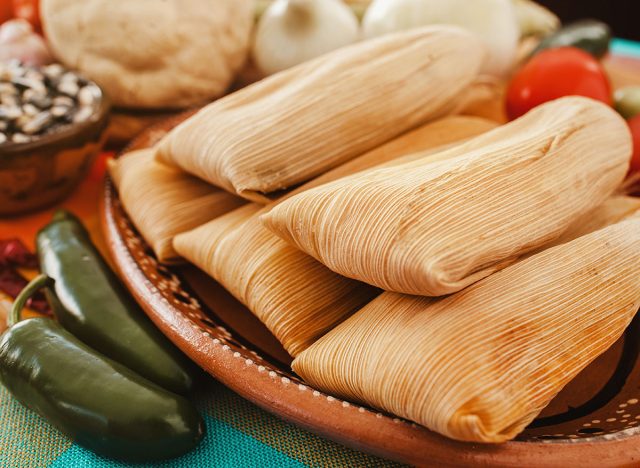
Two local news stations in Texas have reported holiday shortages of tamales due to dwindling supplies prompted by supply chain issues. Higher prices for ingredients led Rufi's Cocina in Waco to increase its prices by $1, according to KWTX10. Meanwhile, the owner of Limon's in Oak Cliff told NBCDFW that "the restaurant had to close early after they sold out of tamales early and didn't have enough ingredients to make more."
Pet Food

Dwindling supplies are not only affecting humans but also their best friends. Shortages are forcing owners to purchase pet food products that aren't the first choice of their beloved dogs and cats. Demand is up for both wet and dry foods after an increase in pet adoptions during the pandemic, according to The Wall Street Journal. In fact, sales rose almost 7% in the 52 weeks ending on Nov. 27.
For more on what's happening at your neighborhood supermarket, check out:
- 15 Worst Grocery Shortages of 2021
- Starbucks Just Launched This Highly Anticipated Grocery Item
- This Beloved Grocery Chain Is Opening Up Stores in 4 New States
- This Popular Grocery Aisle Brand Just Launched a New Premium Burger Chain
